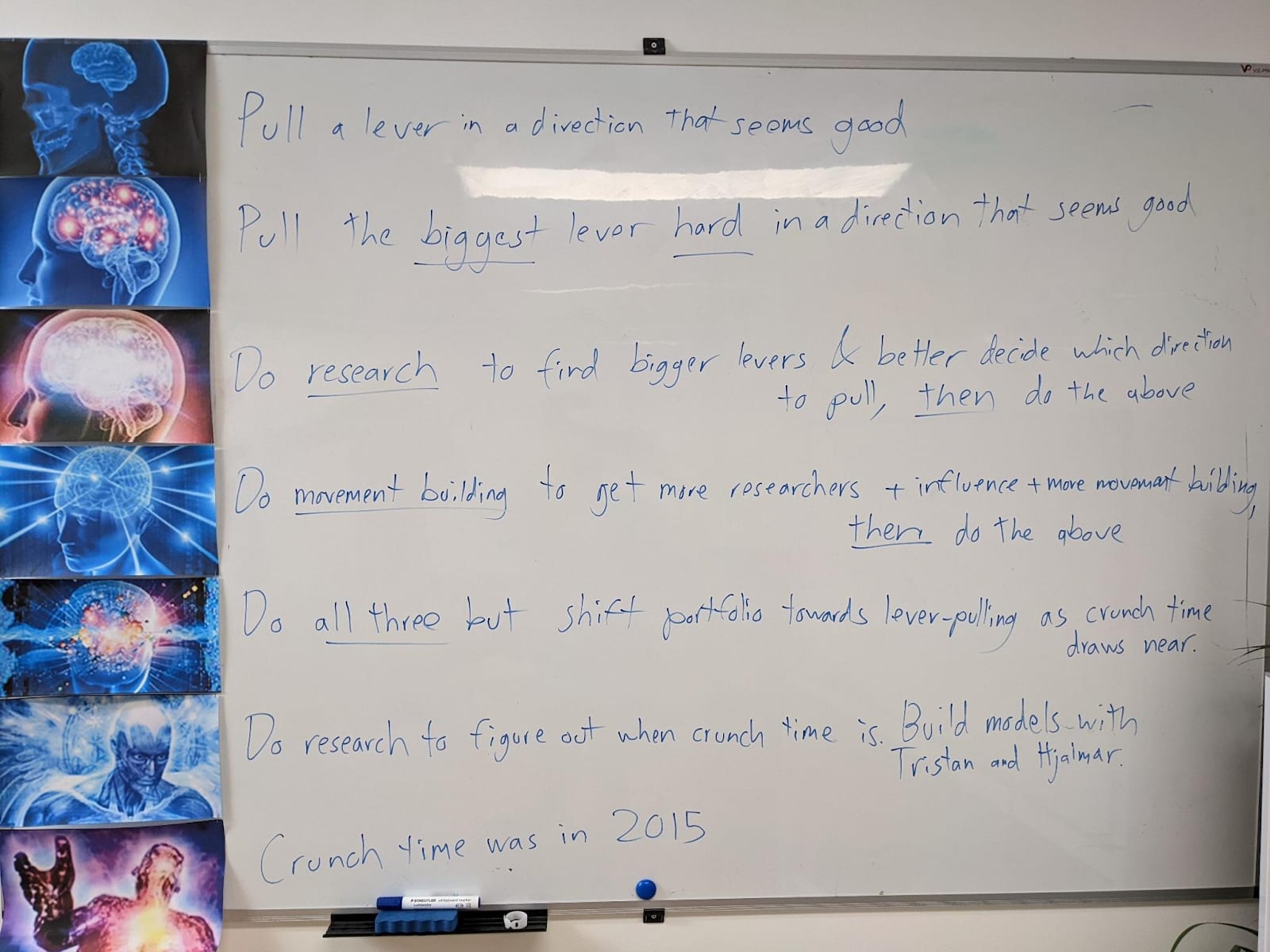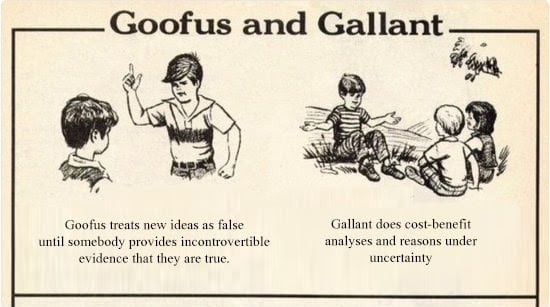Was a philosophy PhD student, left to work at AI Impacts, then Center on Long-Term Risk, then OpenAI. Quit OpenAI due to losing confidence that it would behave responsibly around the time of AGI. Not sure what I’ll do next yet. Views are my own & do not represent those of my current or former employer(s). I subscribe to Crocker’s Rules and am especially interested to hear unsolicited constructive criticism. http://sl4.org/crocker.html
Some of my favorite memes:
(by Rob Wiblin)
(xkcd)
My EA Journey, depicted on the whiteboard at CLR:

(h/t Scott Alexander)

I’m afraid I’m probably too busy with other things to do that. But it’s something I’d like to do at some point. The tl;dr is that my thinking on open source used to be basically “It’s probably easier to make AGI than to make aligned AGI, so if everything just gets open-sourced immediately, then we’ll have unaligned AGI (that is unleashed or otherwise empowered somewhere in the world, and probably many places at once) before we have any aligned AGIs to resist or combat them. Therefore the meme ‘we should open-source AGI’ is terribly stupid. Open-sourcing earlier AI systems, meanwhile, is fine I guess but doesn’t help the situation since it probably slightly accelerates timelines, and moreover it might encourage people to open-source actually dangerous AGI-level systems.”
Now I think something like this:
“That’s all true except for the ‘open-sourcing earlier AI systems meanwhile’ bit. Because actually now that the big corporations have closed up, a lot of good alignment research & basic science happens on open-weights models like the Llamas. And since the weaker AIs of today aren’t themselves a threat, but the AGIs that at least one corporation will soon be training are… Also, transparency is super important for reasons mentioned here among others, and when a company open-weights their models, it’s basically like doing all that transparency stuff and then more in one swoop. In general it’s really important that people outside these companies—e.g. congress, the public, ML academia, the press—realize what’s going on and wake up in time and have lots of evidence available about e.g. the risks, the warning signs, the capabilities being observed in the latest internal models, etc. Also, we never really would have been in a situation where a company builds AGI and open-sourced it anyway; that was just an ideal they talked about sometimes but have now discarded (with the exception of Meta, but I predict they’ll discard it too in the next year or two). So yeah, no need to oppose open-source, on the contrary it’s probably somewhat positive to generically promote it. And e.g. SB 1047 should have had an explicit carveout for open-source maybe.”